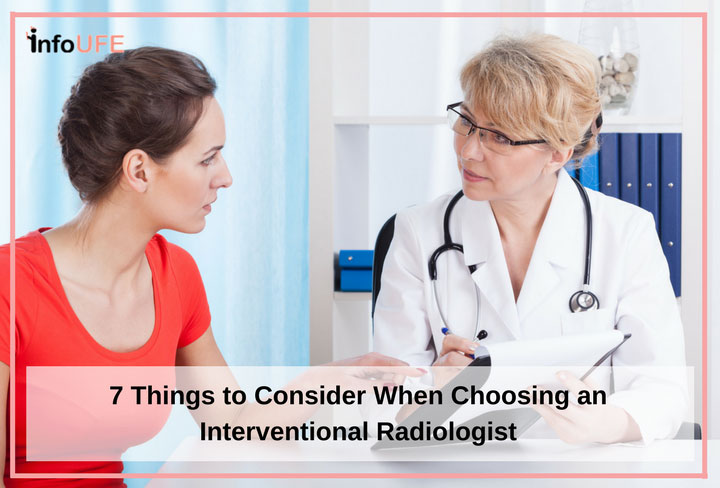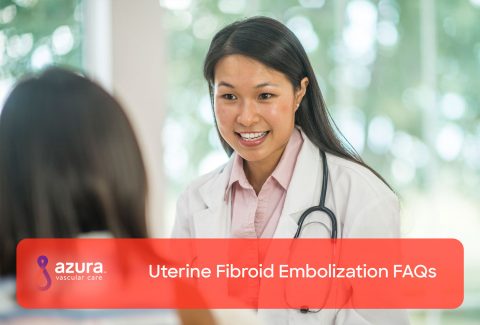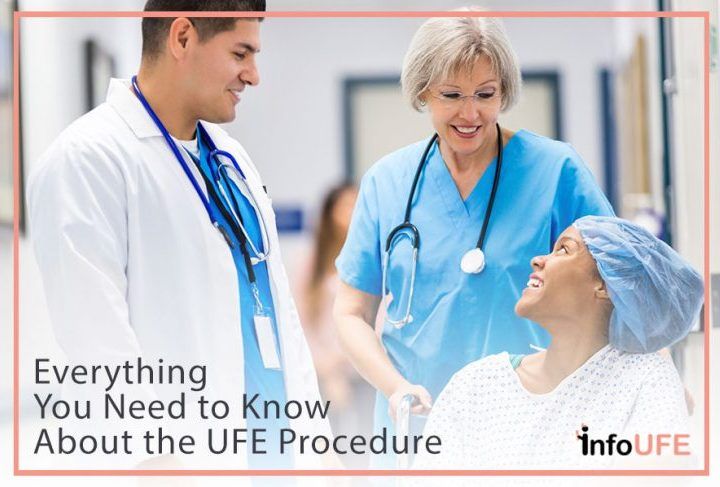
Are you wondering if uterine fibroid embolization (UFE) is an option for the treatment of your uterine fibroids? This procedure uses minimally invasive techniques to treat fibroids, (non-cancerous tumors of the uterus that cause symptoms such as heavy bleeding or pain). If you’re considering UFE, your search to find an Interventional Radiologist may feel overwhelming in the beginning.
What is an Interventional Radiologist?
An interventional radiologist is a skilled physician who’s been trained to use x-ray technology to both diagnose and treat medical diseases without performing major open surgery. An interventional radiologist can tell you whether or not UFE is an option for the treatment of your uterine fibroids. So, what should you consider in your search for an interventional radiologist?
7 Things to Remember in Your Interventional Radiologist Search
1. Board-Certification – Board certification requires two years of additional training after the initial program to become a radiologist is completed. There are also a series of tests required to ensure that the physician can safely and effectively perform interventional radiology procedures.
2. Experience is Key – UFE is a procedure that requires technical skills and knowledge. A small nick is made in the groin or wrist and a catheter is placed inside the femoral or radial artery, then, using x-rays to guide the catheter, the interventional radiologist moves the catheter to the arteries that supply the fibroids. Once the blood supply to the fibroid(s) has been isolated, small beads are placed in the blood vessel to cut off the flow of blood, and therefore, nutrients and oxygen to the fibroid. You want to find someone who’s comfortable with the technology and any unique aspects of working within the arteries of the uterus. Experience is a key element that can provide an interventional radiologist with a solid track record and comfort level.
3. Quality May be More Than Quantity – You do not necessarily need to find the interventional radiologist who has done the most UFEs in your area. When you find someone, you want to know how successful he or she has been. Questions to ask may include:
- What are any typical complications you have experienced when performing UFE?
- How often do complications arise?
- How have you handled these complications?
- How many women have improved symptoms after UFE?
- How soon do women notice any improvement?
- What is the typical recovery time for women after you have performed UFE?[ii]
4. Outpatient UFE is a Possibility – UFE is often performed in an outpatient center. Most women are able to go home the same day that the procedure is performed. Women with complex medical problems may not be a good candidate for UFE or may need to have the procedure in hospital with an overnight stay for observation. It’s important to ask which option you are the best candidate for.
5. Communicating with Your Gynecologist – Because interventional radiologists can treat a wide variety of diseases throughout the body, they often work in partnership with physicians of other specialties. Your gynecologist can usually provide valuable insight into your medical history and responses to previous treatments that will assist the interventional radiologist in determining if UFE is the right procedure for you.
RELATED: 12 Questions to Ask Your OB-GYN About Uterine Fibroids and Treatment Options
6. Your Comfort Level is Important – Ultimately, you need to feel taken care of and be able to trust that the interventional radiologist will provide you with the best possible care. You likely have important questions about UFE, such as how will this treatment help your uterine fibroid symptoms? How safe is the procedure? You should feel comfortable asking the physician who is going to perform the UFE procedure these questions. Beyond that, you want to feel confident that your questions are answered thoroughly.
7. Honesty is Paramount – Not all women are suitable candidates for UFE. You want an interventional radiologist who will be honest with you if you are not a candidate or would not benefit from UFE.
Choosing an interventional radiologist to discuss the treatment of your uterine fibroids is just as important as choosing your gynecologist. This list should provide you with a guide to find the right interventional radiologist who can help you determine whether or not UFE is the right treatment for your uterine fibroids.
Sources:
[i] The American Board of Radiology. Radiology Specialties and Subspecialists. http://www.theabr.org/abr-radiology-specialties-and-subspecialties
[ii] AHRQ Archive, Quick tips – When Planning for Surgery. http://archive.ahrq.gov/patients-consumers/diagnosis-treatment/surgery/tips/tipsurgery.html



